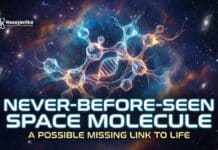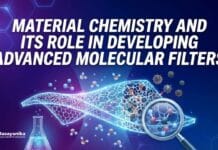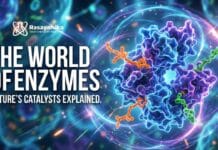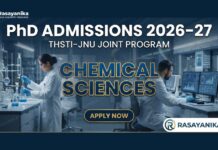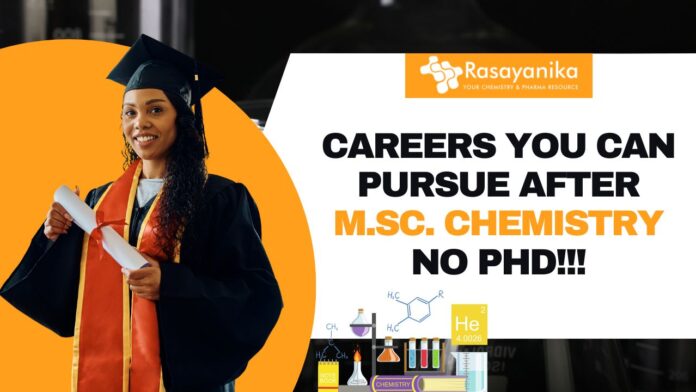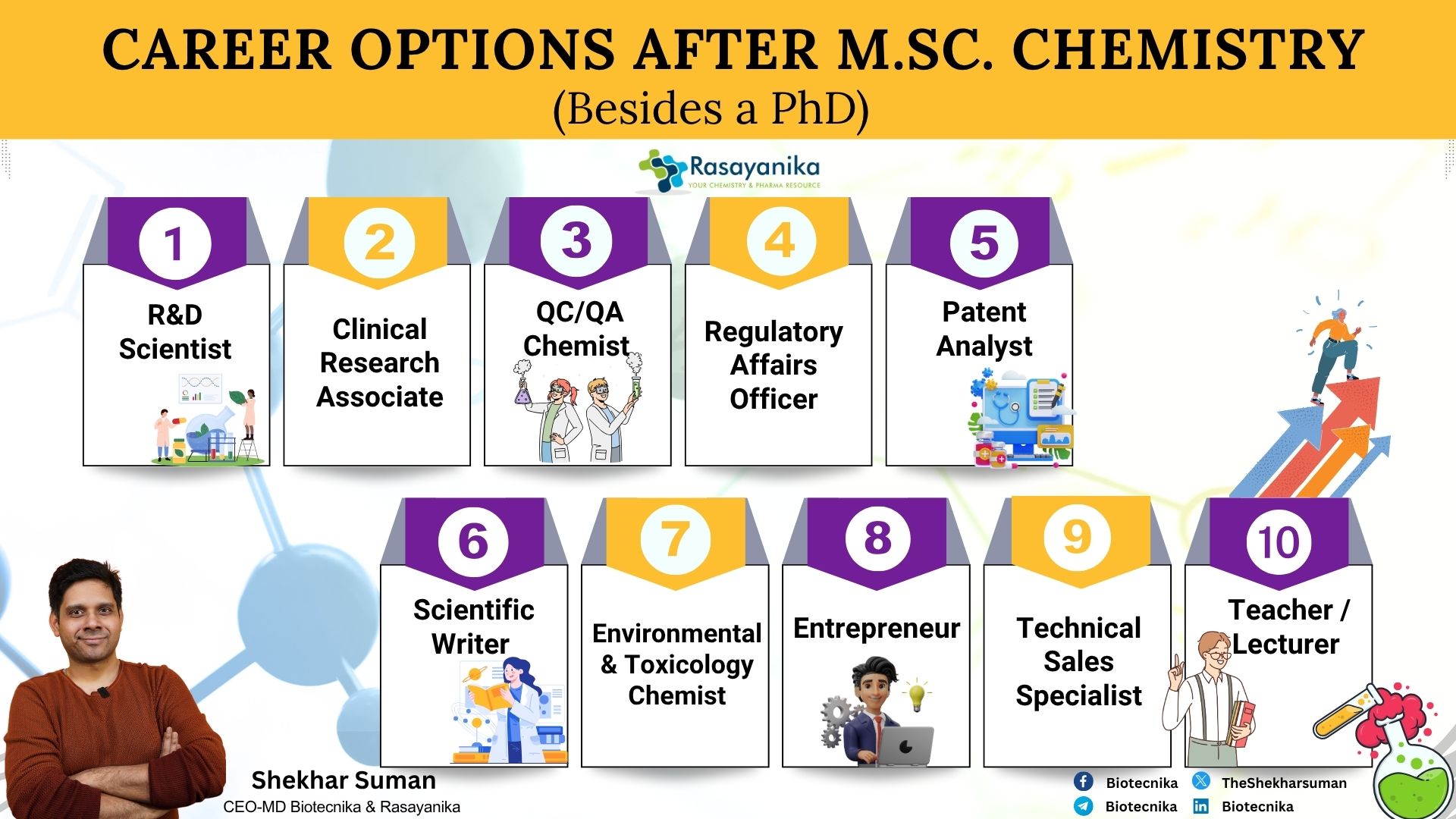Top Career Options After MSc Chemistry (Besides a PhD)
It is a common question for many students: after completing the Master’s program, what should they do next? Should they go for further studies? Or start a job? Should they enter the pharma industry or the research area? Pursuing a Ph.D might be an ideal option if the candidate is targeting the research or academia sectors.
But it is not just that! There are numerous intellectually rewarding and lucrative Career options after MSc Chemistry.
In this article, let us understand those top Career options after MSc Chemistry instead of doing a PhD. The article will also help you explore the technical skills and industry-relevant skillsets that are highly important for candidates.
Why Choose a Non-PhD Path After M.Sc. Chemistry?
There are various reasons for choosing a non-PhD path after finishing your master’s. A few of the important reasons are listed below:
Key Considerations:
- To pursue a PhD, candidates should spend at least 3 to 5 years to obtain the degree. But if you choose any other path, you can enter the workforce sooner.
- Numerous companies hire candidates who can solve and have hands-on experience in solving real-world problems.
- Many companies believe a person with hands-on experience is better than someone with long-term theoretical knowledge.
- These industry roles often provide competitive salaries, bonuses, and rapid promotions.
Keeping this in mind, let us now discuss the various roles one can enter other than pursuing a PhD. Here are the career options after M.Sc. Chemistry:
- Research & Development (R&D) Scientist – Industrial Research
Role Description:
As an R&D Scientist, you’ll contribute to designing, synthesizing, and analyzing new molecules or materials. This includes developing pharmaceutical formulations, catalytic systems, nanomaterials, and industrial chemicals.
Multiple specializations are available, such as Organic Synthesis, which includes APIs and fine chemicals. Polymer chemistry, which includes plastics and adhesives, is another specialization that can be chosen. Studying and designing ceramics and nanocomposites are part of the Material Chemistry specialization, whereas Formulation Chemistry includes coatings and cosmetics.
One should also have a thorough knowledge of different Tools and techniques, such as HPLC, LC-MS, NMR, FTIR, and TGA/DSC. In addition, one should possess knowledge of Reaction optimization and scale-up studies. DOE (Design of Experiments) and QbD (Quality by Design) are also essential.
Top Employers: Syngene, Jubilant Biosys, Dr. Reddy’s, Cipla, BASF, Merck
- Analytical Chemist in Quality Control/Assurance (QC/QA)
Becoming an Analyst in a top company is one of the best career options after an M.Sc. Chemistry. As an analytical Chemist, the role description would be as follows;
In QC, you’re responsible for raw material and product analysis. In QA, your role ensures adherence to regulatory standards such as ICH, GLP, and GMP.
To be a QC or QA Analyst, a candidate should have a thorough knowledge of various analytical methods, such as;
- UV-Vis Spectroscopy
- Gas Chromatography (GC)
- ICP-OES for elemental analysis
- Wet Chemistry techniques
QA or QC candidates can find career opportunities in the pharmaceutical and agrochemical domains, as well as in the food and beverage sectors. They can also join environmental labs and the healthcare sector.
- Regulatory Affairs Specialist
Role Description:
In this role, you prepare technical documentation to ensure the products comply with national and international regulatory authorities. The products must comply with authorities such as the FDA, EMA, CDSCO, and REACH.
Tasks:
- CTD/eCTD dossier submission
- Regulatory strategy development
- Labeling and licensing products
Required Knowledge:
- ICH Guidelines, GxP practices
- Drug Master Files (DMFs)
- Chemical hazard classification (GHS)
- Teaching & Lectureship (School/College Level)
One of the best Career options after MSc Chemistry will be in the teaching sector. One can join as an assistant professor in colleges or universities. Candidates can also choose to teach in high schools as a PGT teacher. Apart from these, one can teach for competitive exams such as IIT-JEE or NEET in different coaching centers.
Pathways:
- UGC-NET/JRF: Required for assistant professorships in Indian universities.
- B.Ed. Required for school-level teaching.
Alongside being a teacher or professor, one can pursue further qualifications like an M.Ed. or any academic research role. This can be achieved in their flexible schedules.
- Intellectual Property Rights (IPR) & Patent Analyst
Role Description:
A Patent Analyst checks chemical inventions for novelty, inventive step, and industrial applicability. Assists in patent drafting and prior art searching, as well as freedom-to-operate analysis.
Technical Skills required for a Patent Analyst include the following;
- Well-versed with patent databases such as Espacenet, WIPO, and Google Patents.
- Knowledge of Indian Patent Law and US/EU Patent Systems.
- Ability to perform structure-activity relationship analysis.
Other Qualifications:
Postgraduate Diploma in Intellectual Property Rights (from NLU or WIPO).
Registered Patent Agent (optional).
- Scientific and Medical Writing
This could be one of the career options after an M.Sc. Chemistry. A scientific writer is a person who translates complex scientific data into clear, readable, and engaging content. He/ she is also responsible for ensuring the data is correct and making compliant documentation procedures.
Types of Writing:
- Clinical Study Reports (CSRs)
- Regulatory submissions (IND, NDA)
- Review articles, technical brochures
- MOAs and safety data sheets
The candidate should have a thorough knowledge of various tools such as:
- EndNote, Mendeley
- ICH E3 Guidelines (for clinical reports)
- AMA Manual of Style
- Clinical Research Associate (CRA)
Clinical Research Associate is one of the Career options after M.Sc. Chemistry: The duties of a CRA include overseeing and managing clinical studies for novel medicinal compounds. Chemistry graduates frequently assist with stability, bioavailability, and pharmacokinetic profiling research.
Typical Employers include
- Pharmaceutical businesses (like Sun Pharma and Glenmark) and
- CROs (like IQVIA and Parexel)
A few certifications that will help thrive in this field are the GCP (Good Clinical Practice) certification and a diploma in clinical research (ICRI, ACRP)
- Chemical Safety & Toxicology Expert
The job description includes working in toxicology assessment for consumer products, industrial chemicals, or pharmaceuticals. You’ll analyze LD50 and NOAEL and perform QSAR modeling to predict toxicity. Various tools, such as ADMET Predictor, OECD QSAR Toolbox, and in vitro and in silico models, will help you find jobs faster. This could be one of the best Career options after M.Sc. Chemistry, if you are interested in toxicology.
Applications:
- Food and cosmetic safety
- REACH dossiers (EU compliance)
- Ecotoxicology assessments
- Environmental Chemist / Sustainability Analyst
The candidate should possess skills in identifying and analysing pollutants, emissions, and waste analysis using ICP-MS, Ion Chromatography, and AAS.
Multiple Regulatory Bodies are as follows:
- Central Pollution Control Board (CPCB)
- National Accreditation Board for Testing and Calibration Laboratories (NABL)
- UN Environment Programs
Candidates would also have additional opportunities in green chemistry, and on the other side, with carbon footprint, EHS compliance, etc..
- Technical Sales / Product Specialist
Role Description:
As a technical sales executive, you’ll work with companies to sell instruments, reagents, or chemical services, often providing pre-sales technical support.
Employers:
- Thermo Fisher Scientific
- Waters Corporation
- Agilent Technologies
- Sigma-Aldrich (Millipore)
Required Soft Skills:
- Product knowledge
- CRM tools (e.g., Salesforce)
- Customer education and training
- Entrepreneurship in Chemistry-Based Startups
Becoming an entrepreneur in the industry is one of the top career options after an M.Sc. Chemistry. If you are innovative and passionate about starting your own company, this is the best option.
Startup Ideas:
- Custom synthesis and chemical consulting
- Herbal product formulation
- Eco-friendly packaging materials
- Lab chemical supplies
Support Systems:
- BIRAC (Biotechnology Industry Research Assistance Council)
- Startup India Program
- CSIR-Tech incubators
- Lab Technician / Instrumentation Expert
Role Description:
Many industries hire M.Sc. Chemistry grads to maintain and calibrate laboratory instruments, design SOPs, and manage laboratory audits.
Specialized Instruments:
- Mass Spectrometers
- Elemental Analyzers
- Automated Titration Systems
Industries:
- Oil & Gas
- Cement
- Food Testing
- Pharmaceuticals
Tips to Enhance Employability After M.Sc. Chemistry
Having relevant certifications makes it easier for you to stand out in the job market and speeds up your hunt for a position. We have listed a few certification courses for your reference: Training in HPLC and GC, Training in ISO, and Quality Assurance and Data Science for Chemists (Basics of R and Python)
Apart from certifications, one should possess numerous soft skills, such as Report writing, Time management, and Critical thinking. This will definitely help you grab job opportunities quicker.
Pursuing a Ph.D. is just one of Career options after MSc Chemistry. Whether your strengths lie in experimentation, writing, regulatory work, or business, there are diverse and high-impact careers waiting for you. Equip yourself with domain-specific certifications, internships, and skill upgrades to stand out in your desired field.





